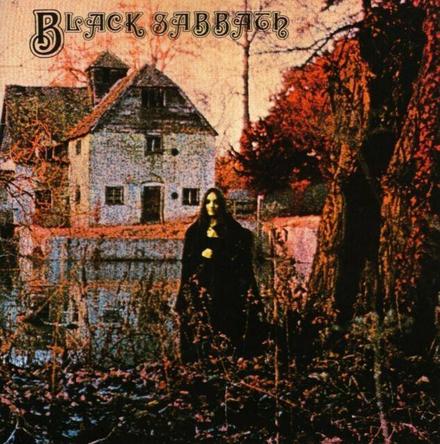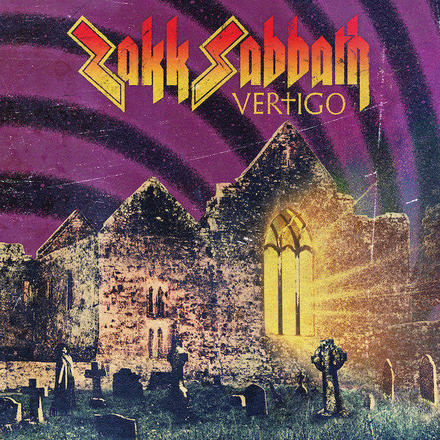Black Sabbath's debut retains the deepest and most sustained pull -- no formula, all surprises. We hear four working-class yobs playing how they feel, dark, weird, stony, with a big appetite for blues & jazz jams. Sabbath's distinctive sound may seem to have arrived from nowhere, but it didn't.
* * *
1. British blues. In the late 1960s, English blues bands such as Chicken Shack, Ten Years After and Savoy Brown applied factors that their American idols such as B.B. King, Albert King and Muddy Waters rarely exhibited: Influenced by American psychedelians Quicksilver and the Grateful Dead, the Brits often played a song for a half hour; their guitarists burned up the fretboards way faster than their black blues idols; and they wrought more riffs. Black Sabbath, previously called Polka Tulk Blues Band, had copied competitors Jethro Tull to the extent that guitarist Tony Iommi huffed Ian Anderson-style flute; Iommi even joined Tull briefly and can be seen backing Anderson on the "Rolling Stones Rock and Roll Circus" video, filmed in late 1968.
2. American rock. Facing a flooded Brit blues market and realizing that Iommi was not yet an Eric Clapton or Alvin Lee, Sabbath tried to distinguish themselves by tapping funky white American rock, firstly Minnesota's Crow, whose "Evil Woman" became their debut single, continuing a musical wave of satanic bitches that would include Spooky Tooth's "Evil Woman," ELO's "Evil Woman" and the Eagles' "Witchy Woman." Crow's syncopated riff itself was an adaptation from Ricky Nelson's 1962 "Summertime" and the Blues Magoos' 1966 "We Ain't Got Nothin' Yet," and would be appropriated by Deep Purple for "Black Night" in 1970. Heavy riffs would rule. Also please note Led Zeppelin's "How Many More Times," 1969.
3. Evil. "Evil Woman" was ejected from the American release of "Black Sabbath" in favor of the single's jazzy flipside, "Wicked World." Possibly Warner Bros thought American audiences would not bless "Evil Woman" a second time for foreign enrichment, especially seeing that Crow's version was better. And the 1964 Italian horror-film triptych "Black Sabbath," starring Boris Karloff, features a number of evil women, one of whom looks strangely familiar.
4. Magick. "Black Sabbath" contains several songs about magic. "Black Sabbath" is told from the point of view of a lad who is selected for human sacrifice by a Druidical figure in black. In "The Wizard," a whiter shade of magician dispels demonic powers for a grateful populace. "N.I.B." concerns being seduced and owned by Lucifer, possibly meaning heroin. "Behind the Wall of Sleep" is about heroin addiction, a.k.a. tragic magic. Thanks for the lyrics go to bassist and guilty Irish Catholic Terry "Geezer" Butler. Before the word's current usage denoting a strange old guy, Brits called a man of any age a geezer. But in postwar drug circles, geezing was the act of hypodermic injection.
5. "Vertigo." Zakk Sabbath's new revisitation of "Black Sabbath," titled "Vertigo" after the English label on which it appeared, transcends tributehood via Zakk Wylde's soulful growl, his inflammatory guitar work, and the concentrated energy of bassist Blasko and drummer Joey Castillo. But I have a few questions. 1) The album was intended to be recorded analog, onto 2-inch tape in a couple of days, the way the original was. The credits, however, mention no such details; the sound is more defined than any analog music you could name; and the "making of" DVD has many studio shots but none showing a reel-to-reel. 2) The credits mention "Evil Woman," but the band doesn't play it, unless you count the similar riff two-thirds of the way through the jammy "Warning" (yet another late-'60s Brit-blues song, from the catalog of Aynsley Dunbar Retaliation). 3) Zakk's choice to play one of his own signature Gibson-style guitars instead of Iommi's selection of Fender Stratocaster on "Wicked World" is understandable. And in spite of Zakk's homage to Ozzy for telling him how to replicate the harmonica sound on "The Wizard," Zakk actually gets a better, harsher wheeze out of the thing. But why no jew's harp on "Sleeping Village"? Just asking.


